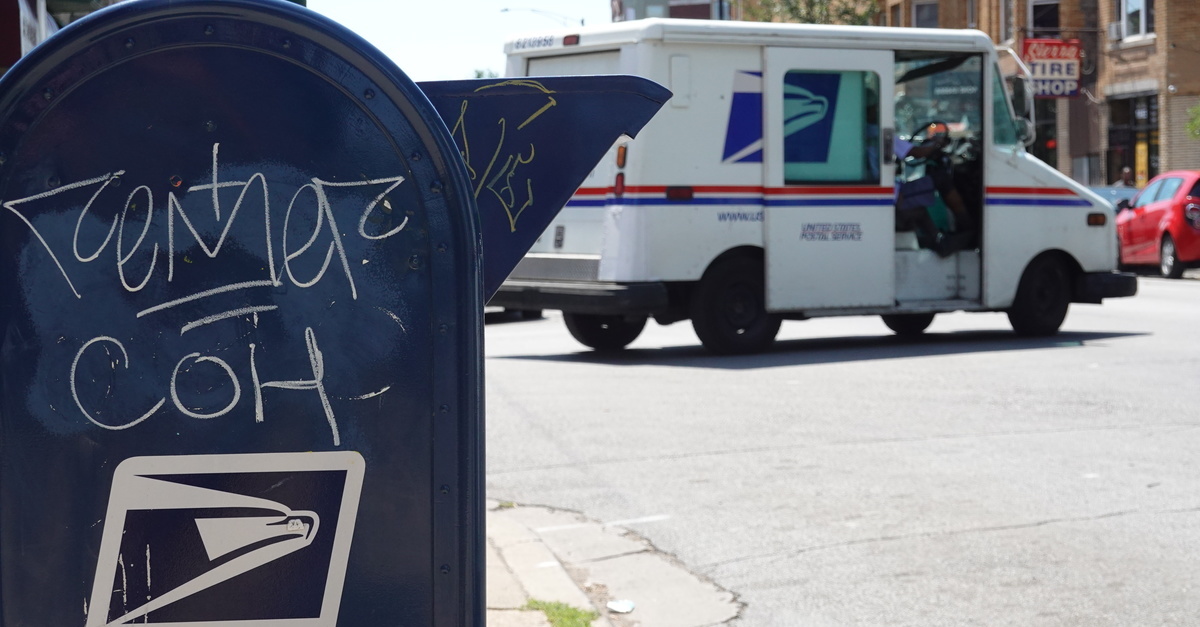
Daylong hearings over the court-ordered “sweeps” of missing mail-in ballots began with a federal judge scorching the U.S. Postal Service (USPS) for blowing past a deadline and ended with surprising testimony by an official who oversees the mail-in ballot process for this year’s election.
Following a Wednesday morning hearing in which U.S. District Judge Emmet G. Sullivan “thrashed” USPS for disregarding his order from the day before, the judge ordered the agency to make a senior agency official available for a second afternoon hearing—to provide sworn testimony about the agency’s procedures and about why it is unable to track more than 300,000 mail-in ballots across the nation.
The proceedings came as part of ongoing litigation filed by several voter advocacy groups who claimed that delays in the mail system threatened accurate election results, particularly in the 28 states that do not accept ballots that arrive after Election Day. Those groups highlighted the steps taken by Postmaster General Louis DeJoy to cut hours from postal staff that exacerbated the delivery problems which a series of court orders later blocked from remaining in effect. The Postal Service’s failure to meet Sullivan’s deadline earned the judge’s fury.
Sullivan, always very friendly with both parties, is NOT happy.
“I would like you to explain just what the heck happened yesterday.”
— Megan Mineiro (@MMineiro_CNS) November 4, 2020
“I would like you to explain just what the heck happened yesterday,” Sullivan reportedly scolded the government, during a morning session where he signaled he might order DeJoy to the hot seat.
Kevin Bray, a 26-year veteran of the post office who for the past four weeks was charged with overseeing all election-related mail, appeared via teleconference on behalf of USPS, where he answered questions from plaintiffs’ attorneys for several hours regarding mail flows, delivery processes, and facility sweeps.
“Today, I confirmed that the sweeps were carried out as instructed in plants located in the Central Pennsylvania, Philadelphia, Detroit, Colorado/Wyoming, Atlanta, Houston, Alabama, Northern New England, Greater South Carolina, South Florida, Lakeland, and Arizona districts,” Bray wrote in an 8-page declaration submitted to the court.
According to Bray, the reason the agency was unable to track the ballots was due to the decision to prioritize delivering election-related mail as quickly as possible by removing it from the normal mail-flow and sent through express delivery. However, while regular mail gets both an origin and a destination scan during the sorting process, express mail only gets an origin scan. The lack of a destination scan means that ballots placed in express mail delivery flows cannot be tracked.
Bray was then asked if a ballot lacking a destination scan could potentially be lost in a processing facility and not delivered to a polling site.
“I suppose it’s possible,” Bray said, adding, “but that’s exactly what the ballot sweep is designed to mitigate.”
Bray also conceded that the agency was very likely capable of setting up a system that would have enabled the express voting mail to be tracked through the delivery process.
“Looking back hindsight we could’ve come up with a method [for scanning express mail],” he responded, but said the main priority was speedy delivery “by any means necessary.”
Bray also made it clear that USPS does not currently have data pertaining to the number of mail-in ballots postmarked by Election Day that have not yet been delivered. Sullivan ordered the agency to produce those numbers by 9 a.m. Thursday, scheduling another hearing for 11 a.m. that day.
Notably, prior to questioning Bray, one of the plaintiff attorneys said they had just received a report through the Election Protection Hotline that there were “boxes of ballots” piling up at the Greensboro mail facility in North Carolina. A Department of Justice attorney later said there were “no ballots at the plant,” but just before the hearing ended, plaintiff’s attorney requested additional information on the facility, saying another call about the facility had come in during the proceedings.
Before concluding the proceeding, Sullivan emphasized to the government’s attorneys that USPS was “not off the hook” for defying his order, but he said the immediate priority was ensuring any ballots that were still in the mail be located and delivered as quickly as possible.
Read Bray’s Declaration below:
Bray Declaration 11.4 Pages 1-8 _OCR by Law&Crime on Scribd
[image via Scott Olson/Getty Images]
Have a tip we should know? [email protected]